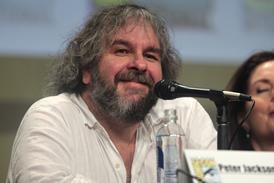Dir: Robinson Devor. US. 2007. 80mins.
The much-awaited Zoo will draw enviable publicity (already evident at Sundance, where it premiered) because of the salacious nature of the story that inspired the film: the death from a perforated colon of a man who had sex with a horse in 2005 at a gathering of like-minded animal-lovers in Enumclaw, near Seattle.
Audiences will find that Zoo is not a feature-length tabloid story, nor is it a chronicle of the police investigation of the group of zoophiles who organised the gathering at which the fatal injury was suffered. Anything but obvious, Zoo is a poetic documentary that examines relations between species that, in this case, lead to sexual encounters. Devor is determined to humanise the men who love horses in the extreme as outsiders doomed to be misunderstood and scorned by society.
Its audience will certainly include arthouse aesthetes who will find similarities in director Robinson Devor's work to that of Erroll Morris, David Lynch and Guy Maddin. The titillation factor - which made stories of the case the most-read articles in the history of the Seattle Times - will also give the film a clear identity in the theatrical marketplace, although those searching for footage of the act itself will have to look elsewhere. Revulsion at the very notion that these acts could take place could lead to public condemnation of the film, and scare off the US mainstream audience that flocked to March Of The Penguins and other films that humanise animals. Yet Zoo as a story that probes a hidden dark side of America could find some interest beyond festivals in Europe and Japan.
Co-written by Devor and blogger and cultural critic Charles Mudede, Zoo has an ambitious aesthetic and a risky moral tolerance. Neither quality usually wins a broad audience, but Devor is sure to please the small committed base that has been growing since his debut feature, Woman Chaser (1999), and Police Beat (2005), a dreamy story of an African immigrant policeman in Seattle co-written with the Zimbabwe-born Mudede.
Zoophiles - or Zoos, as they call themselves - are the real subject of Devor's documentary. In audio interviews, the men, who also film their sex with horses, try to differentiate themselves from practitioners of bestiality by arguing that Zoos' relationships with horses and other animals are bonds of true affection. Here again the film is swimming upstream against preconceptions. If Devor's tone doesn't give credence to what the men are saying, it goes out on a limb by encouraging the audience to view them with dignity.
To complicate the story, sex with an animal is not a crime in the state of Washington, and police seeking to bring animal cruelty charges were stymied, never able to prove that the horse in the encounter was coerced into doing anything.
Cinematography by Sean Kirby frames testimony and recreations of alienated Zoos gravitating toward each other in the lush green horse country of Enumclaw, an Eden in which private desires, however strange, can be fulfilled and filmed. The documentary's original title was In The Forest There Is Every Kind Of Bird.
As Mr Hands, the man who dies 'in the saddle,' John Paulson plays a Seattle computer engineer whose emotional needs go far beyond what his wife and child can provide. He walks in a stoic dreamlike silence toward the encounter that kills him in re-creation scenes that quote The Thin Blue Line. Uncredited music in the style of Philip Glass heightens the fatalistic mood, as do long gothic shots of ominous skies and light within the dark Northwestern forest.
Recognising that exposure could bring public condemnation and ridicule (the two common reactions when the case came to light), Mr Hands is known, until he dies, by his email address. In deference to the privacy of his wife and son, Devor leaves the man's name out of the film, although it has been published widely in news reports since the case hit the media.
In another fatalistic strand of the story, fellow Zoos played by Richard Carmen and Russell Hodgkinson in recreations are pursued by the police and eventually flee the area.
US distribution
THINKFilm
International sales
THINKFilm International
Producers
Peggy Case
Alexis Ferris
Executive producers
Garr Godfrey
Ben Exworthy
Daniel Katz
Mark Urman
Jack Sackman
Randy Manis
Screenplay
Robinson Devor
Charles Mudede
Cinematography
Sean Kirby
Production design
Jeanne Cavenaugh
Editor
Joe Shapiro
Main cast
John Paulson
Richard Carmen
Russell Hodgkinson






















No comments yet